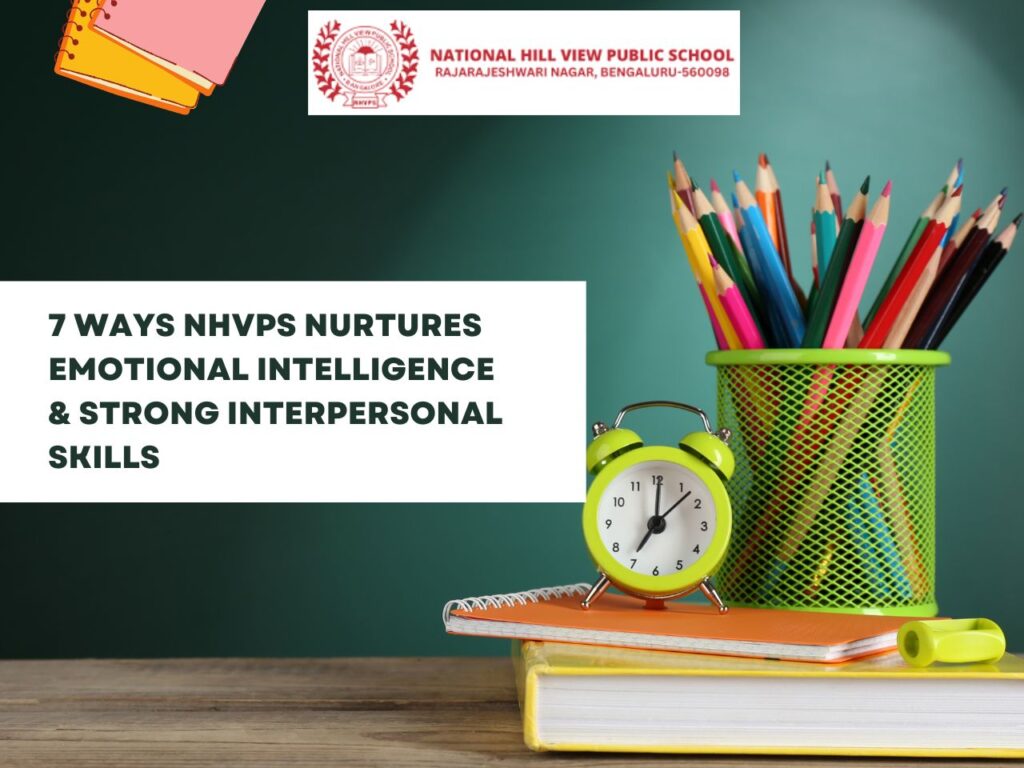Academic success is just one part of a child’s development.
At NHVPS, equal focus is placed on nurturing Emotional Intelligence strength and human connection.
Students are taught to understand, manage, and express their emotions while building meaningful relationships.
1. Integrating Emotional Learning in Daily Curriculum
NHVPS incorporates emotional learning into everyday lessons by encouraging open discussions, reflective thinking, and empathy-building activities. Students learn how to identify emotions, manage stress, and express themselves appropriately, all within the classroom context.
Group projects, class discussions, and team-based assignments teach students how to communicate effectively, listen actively, and resolve disagreements with mutual respect. These interactions foster a culture of cooperation and mutual understanding.
3. Guidance from Counselors and Mentors
4. Conflict Resolution and Empathy Training
5. Role of Teachers in Emotional Development
6. Events That Celebrate Kindness and Inclusion
NHVPS hosts “Kindness Weeks,” “Gratitude Boards,” and community outreach events. These initiatives help students realize the power of compassion, gratitude, and giving—fostering both emotional and social growth
7. Encouraging Journaling and Self-Reflection
FAQ
NHVPS believes emotional intelligence builds self-awareness, empathy, and resilience, crucial for personal and academic success.
Students engage in group activities and discussions that promote clear, respectful, and effective communication daily.
Yes, NHVPS trains teachers to recognize emotional needs and foster safe, empathetic classrooms where students thrive.
Programs like kindness drives, peer support groups, and social campaigns teach students to care deeply for others.
Absolutely, NHVPS offers regular counseling, wellness programs, and emotional check-ins to support student mental health.
Conclusion
At NHVPS, emotional intelligence is considered as important as academic achievement. Through compassionate teaching, peer-based collaboration, and personal development programs, the school empowers students to grow into emotionally intelligent, socially aware individuals. These qualities help them succeed in life—with resilience, empathy, and strong interpersonal connections.

